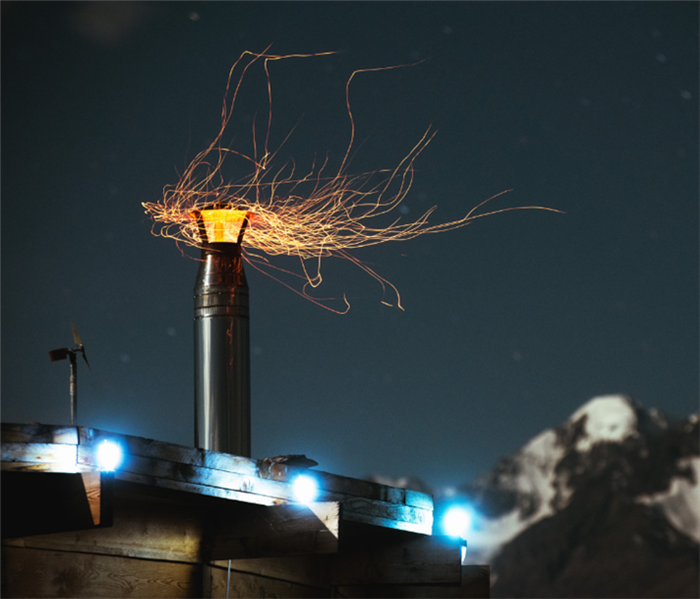Chimney Fires
2/2/2022 (Permalink)
 Confined fires, those fires confined to chimneys, flues, or flue burners, accounted for 87 percent of residential building heating fires. (USFA)
Confined fires, those fires confined to chimneys, flues, or flue burners, accounted for 87 percent of residential building heating fires. (USFA)
During the bitterly cold weather of the winter season, many Southern Ohio homeowners use alternative forms of heat to keep warm. Probably the most popular would be wood-burning stoves & chimneys. Though this is a great way to heat your home, there are also precautions that need to be addressed in order for this to be a safe practice.
With the help of the Chimney Safety Institute of America (CSIA), we hope to keep homeowners informed so that chimney fires are a thing of the past. In order to better prevent chimney fires, we must first understand what are the main causes. One of the most common causes is the build-up of soot and creosote. These two are the byproducts of burning wood. Every time you burn, these byproducts condensate on the walls of your flue pipe, slowly building up. Creosote specifically, is corrosive to your flue pipe as well as highly flammable.
Another large cause of chimney fires is damaged/missing caps on your chimney. During the cold weather, an uncapped chimney pipe is an open invitation for animals to enter and build nests. Materials that these animals bring in are easily flammable could start chimney fires.
Now that we understand what are some of the main causes of these fires, here are some ways to prevent your home from becoming at risk. The CSIA recommends the following:
- Schedule annual inspections & periodical cleanings of your chimney/stove and flue pipe.
- Burn dry wood only, DO NOT try to burn wet material!
- Inspect your liner. A good liner can help reduce the build-up of creosote.
- Install a quality chimney cap.
- Make sure your chimney receives adequate air and is free of blockages.
Hopefully, with these tips, your home will never have to experience the damage of a chimney fire. However, if you are facing a fire loss as a result of a chimney fire, know that there’s a pro for that! SERVPRO of Jackson & Ross, Athens & Gallia Counties is available 24/7 at (740) 286-2550 and is dedicated to making it "Like it never even happened."
Source:
“The Facts about Chimney Fires - US.” Chimney Safety Institute of America, 29 Jan. 2022, https://www.csia.org/homeowner-resources/the-facts-about-chimney-fires-your-questions-answered/.






 24/7 Emergency Service
24/7 Emergency Service